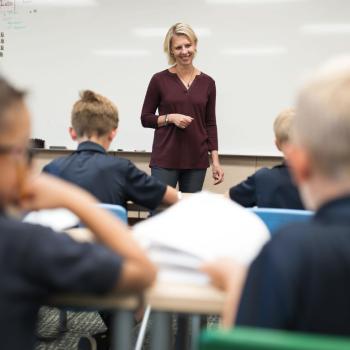Liberian Peace Activist Asatu Bah-Kenneth, promoter and cast member of the film Pray the Devil Back to Hell, was unable to attend the conference, as she could not get a visa for Australia. However, her film was shown in Melbourne. It highlights the Muslim and Christian Liberian women who, after more than a decade of civil wars leading to more than 250,000 deaths and one million refugees, rose up and forced peace on their shattered country and propelled to victory the first female head of state on the African continent! Here is a website to learn more about this powerful documentary film. Within that site, here's a page that lists showings of the film across the U.S. in coming weeks.
I have to admit I became a Sr. Joan Chittister junkie throughout this conference, and followed her to two other presentations, one entitled "The Divine Feminine." Female divinity, or feminine aspects to the divine, can be found in many religious traditions. For some women and men, the Divine Feminine is a source of strength and balance. The feminine aspects of the divine are foundational to their religious practice. Redressing the current imbalances of the world -- excessive greed, polarization, isolation, and environmental destruction -- requires a new or renewed connection to the feminine energies of the divine, Chittister argued. Women who are left out of property, politics, food, water, and schooling are the invisible majority of the human race.
When I later attended the session entitled "Conversation with Sister Joan Chittister" I was fascinated to see that more than half of the audience were men, clearly demonstrating that these crucial issues are no longer exclusively regarded as "women's" issues. This was in stark contrast, according to Chittister, to women-only sessions that were held at similar conferences in the past.
Flying home to the U.S., we landed in the Los Angeles airport twelve hours after take-off on our Air New Zealand flight. Then, the next day, we caught a flight to Detroit. It was on this flight that I wound up sitting next to a 7-year-old, second-grade, adorable little girl who became my conversation companion for the flight. On the other side of the little girl sat her mother, a California woman in her mid-20s who was flying with her husband and three children to spend holidays with her parents in the Midwest.
As they took their seats and buckled up, the mother glanced my way and saw that I was reading Bruce Feiler's Where God Was Born: A Daring Adventure Through the Bible's Greatest Stories. Her face lit up and she asked me if I was a Christian? Did I go to church?
I explained that reading a book about God did not necessarily make me a Christian. Many religions believe in God. I asked her if she was familiar with the Old Testament as well as the New Testament. She said that she had read parts of it, but her primary focus was on reading the New Testament each day and coming closer to Jesus. She seemed flabbergasted as I described the origins of the Bible in the Torah and explained that a portion of the Bible that Christians consider holy is also considered a holy text by Jews. As it turned out, she had never met a Jew. I described WISDOM, my women's interfaith organization, and I explained that the women on my board of directors were affiliated with eight different religions. I told her I was on my way home from attending a global conference about religious diversity in Melbourne, Australia.
Then her little girl spoke up and announced that she knew one word in Hebrew, and it meant, "Hello," but she couldn't remember what it was. When I mentioned the word "Shalom," she nodded. I explained that the word meant much more than, "Hello." It also means, "Goodbye" and "Peace." Both the girl and her mother were surprised. I told the girl that one of my cats is named "Shalom," and she was quite amused!
That exchange on the plane certainly reinforced why our interfaith efforts are so important. So many people live in segregated communities and live with such misconceptions and lack of knowledge. Sister Joan Chittister talked about how people can limit God if they hold onto limited assumptions about God. Many people around the world may be confused about who God is, she reminded us, but God does not have an identity problem! Specifically, she was warning against the temptation to cast God in exclusively male form. When we limit our knowledge of God, she said, we "see with one eye, we hear with one ear, we think with only half of our brain -- and it shows."
Read Part 1 of our Reflections on the recent Parliament of the World's Religions here.
This article and photos originally appeared at ReadtheSpirit and is reprinted with permission.
Gail Katz is the chairperson of the World Sabbath for Religious Reconciliation, and works part time for the Michigan Roundtable for Diversity and Inclusion. Gail is a Vice-President of the Jewish Community Council and the chairperson of their Detroit-Jewish Initiative, a committee that connects the Jewish community with other faith based and ethnic groups in Detroit. Gail is an active member of Congregation Beth Shalom in Oak Park, working toward involving her synagogue in diversity and interfaith events.




